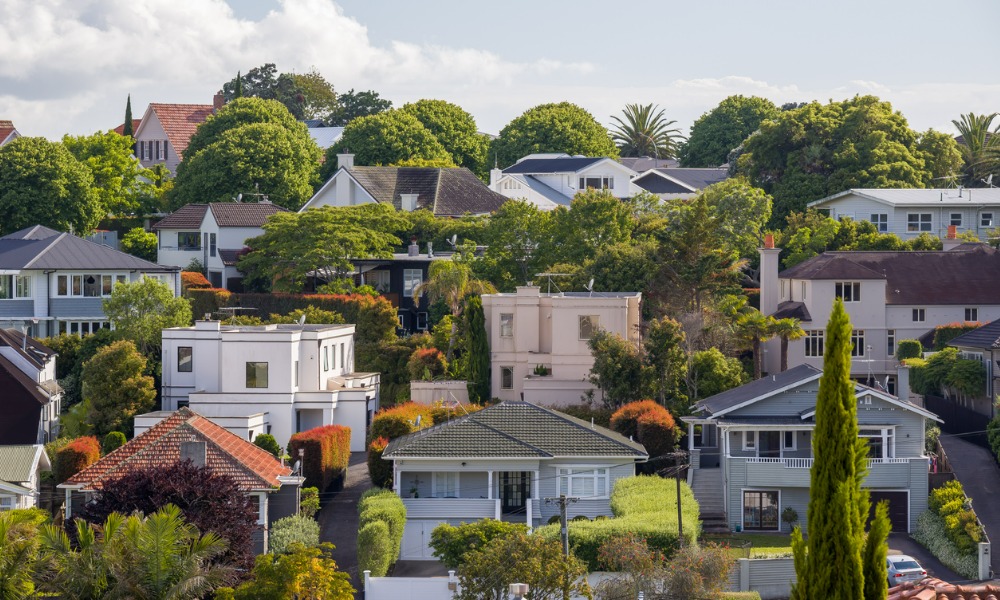But fears that rising interest rates and falling prices will hit mortgage borrowers have been played down

New Zealand’s property market has continued its downward trajectory, with the average house price slipping below $1 million for the first time in nearly a year.
CoreLogic’s latest house price index, released on Thursday, showed that property values fell 1.8% in August – that’s double the 0.9% fall recorded in July.
Read more: New Zealand is halfway through the biggest house price falls in decades – ASB
But fears that rising interest rates and falling prices will drive a mortgage crunch have been played down, with one expert saying the strong labour market meant most New Zealanders would be able to weather the storm, The Guardian reported.
New Zealand has been trying to rein in a runaway housing market for years, with Wellington and Auckland among the least affordable property markets in the world. Homeownership rates have also been on a decline since the early 1990s across all age brackets, but especially for people in their 20s and 30s.
But the three-month fall in values of 3.5% reported by the property analytics company is approaching the levels seen during the GFC, when declines bottomed out at 4.4% at the end of August 2008.
Read next: House prices can fall further – ANZ
The average national house price of $991,674 was the lowest since the average breached the million-dollar mark in November 2021, The Guardian reported.
Nick Goodall, CoreLogic NZ’s head of research, said the downturn had become firmly entrenched and evident across the entire country, as increasingly weary buyers hold back.
“With the evidence of market downturn clear in every corner of the country, the already-smaller pool of would-be buyers – due to tighter, more expensive credit – are happy to bide their time in the falling market,” Goodall said.
A restrictive lending environment, rising interest rates, and waning market confidence all appear to be warding off prospective homebuyers the most, he noted.
But homebuyers who managed to save enough money to enter the property market at its peak in 2021, only to see their values plunge a year on and their housing expenses rise, may be feeling worried, Goodall said.
“We know that about 45% of all mortgage rates are due to roll over within the next year, and so many of those people will be coming off relatively low rates – from the twos and threes up into the fives – those people are certainly in for an adjustment,” he said.
Goodall said that changes in discretionary spending will enable most people to absorb the costs.
A loss of income, or not being able to service mortgage payments, could result in a mortgagee sale, which in this market may mean selling the property for less than the amount the buyer bought it for. This should not be cause for concern within a solid labour market, however, Goodall said.
Mortgagee sales remained low. There were 21 sales in the second quarter, up from 6 in the first, but they were still well below the peak of 777 in the second quarter of 2008.
Goodall said that credit arrears remain low, according to credit agency Centrix and the Reserve Bank.
Meanwhile, changes to house values will not cause an immediate problem to recent buyers, unless they are looking to sell.
“Bankers are not going to come calling simply because the value of your property has fallen,” Goodall said, adding that many recent borrowers will have paid upwards of a 20% deposit on their loan, which would guard them against short-term shocks, The Guardian reported.



